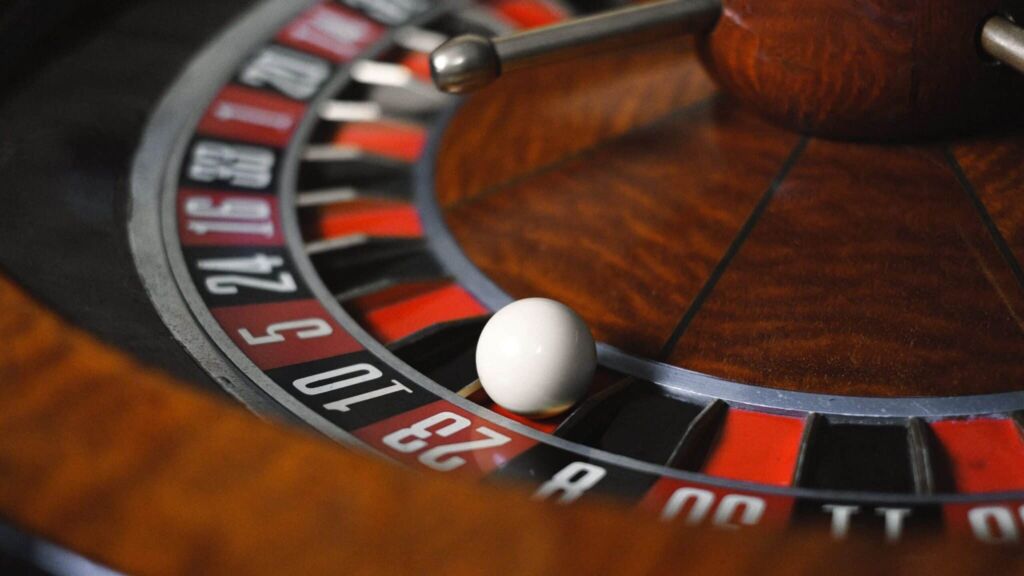Roulette, frequently seen as a luck-based game, provides a surprisingly detailed and strategic landscape for those willing to go beyond basic bets. This comprehensive guide addresses players aiming to refine their strategies, dismiss common myths, and enhance their understanding of risk management and maximizing winning potential.
Mastering the Complexity of Roulette for Strategic Depth
To truly excel at roulette, one must look beyond its glittery appearance and understand its foundational elements. The game involves a complex interplay of probabilities and odds. A critical point for any strategic player is the choice between European and American wheels. The single zero European wheel offers players better odds compared to the dual-zero American version. This seemingly minor difference significantly impacts the house advantage, making it approximately 2.7% with the European wheel and about 5.26% on the American one. Selecting the right type of wheel is the initial strategic decision for a knowledgeable gambler.
Developing an advanced roulette strategy encompasses more than just understanding odds; it's also about knowing the variety of potential bets and how they align with probability. Roulette bets can be divided into inside and outside bets. Inside bets focus on individual numbers or small clusters, providing higher returns but with lower winning likelihoods. Examples include placing chips on one number or splits and streets. Outside bets cover broader categories, yielding smaller payouts but increasing chances of winning, like choosing colors or grouping numbers as even or odd, low or high. This division is essential for designing a strategy based on personal risk tolerance and objectives.
In-Depth Look at Sophisticated Betting Systems
While strategies alone cannot overcome the house edge, advanced betting methodologies aim to capitalize on favorable streaks and minimize losses. It's crucial to highlight that these systems are structured approaches to wagering rather than guarantees of success, providing guidelines on how to approach betting without altering the game's inherent odds.
The Martingale Strategy: High-Risk Approach
The Martingale system, albeit widely known, is often misunderstood. Its concept is straightforward: double your stake following a loss to recoup past losses and secure a slight profit with a subsequent win. For instance, start by betting $10 and, if unsuccessful, increase to $20, then $40, continuing until a win compensates for prior setbacks. Although seemingly rational, this approach entails significant risk, quickly amplifying bet amounts. Moreover, casino betting limits can impede doubling the bet indefinitely, creating potential issues. The Martingale is suited for those with large bankrolls who accept the volatility of a high-stakes strategy.
The D’Alembert System: Steady Progression
In contrast to the Martingale, the D’Alembert involves a more measured approach by escalating bets incrementally after losses and decreasing them upon wins. By using units instead of doubling, it lowers the risk of swift bet escalation, offering a steadier path. For instance, starting with a $10 bet and losing raises the next to $20; losing again elevates it to $30, and winning drops it back to $20. Unlike the Martingale's rapid recovery quest, this technique aims to balance wins and losses over time, although it shares a fundamentally flawed premise and doesn’t affect the house advantage. Its merit is in prolonging play and moderating the betting experience.
Fibonacci Betting Strategy: A Number Sequence Approach
The Fibonacci method, inspired by the eponymous sequence, translates this mathematical progression into betting increments, where each number represents a sum of the two prior numbers (1, 1, 2, 3, 5, etc.). Post-loss, bets follow this sequence upward; post-win, they revert two steps. Starting with $10 (the sequence's first '1'), a loss advances to the next '1' ($10), then '2' ($20), '3' ($30), if losses persist. A win would step two numbers back for the upcoming bet. Although less aggressive than other systems, its approach is to profit from streaks while softening losses. Like all progression systems, it doesn’t change the odds but provides a manageable betting framework that might extend playing time.
The Labouchère Method: Strategic Flexibility
Also termed the 'cancellation' system, the Labouchère offers a nuanced and adaptable progression method. Players set a line of numbers like 1-2-3, wagering the sum of the first and last entries. Wins eliminate these numbers from the sequence, while losses append the lost amount, lengthening future bets. Designed for strategic adaptability, it lets players tailor risk by altering their initial line composition. However, long losing streaks can result in cumbersome, expanding sequences. Success hinges on conclusion before hitting betting restrictions or depleting funds.
Complex Roulette Techniques: Beyond Traditional Systems
Sophisticated roulette play involves more than mere betting systems, extending to analyzing wheel mechanics, observing dealer patterns, and utilizing favorable casino conditions. Such strategies entail greater intricacy and demand a keen understanding coupled with observational expertise.
Exploiting Wheel Flaws and Sector Targeting
The notion of wheel bias is rooted in the theory that roulette wheels might not always produce outcomes by pure chance. Because of potential flaws from manufacturing, regular wear, or slight imbalances, certain numbers or parts of a wheel may become predisposed to appear more frequently. Although casinos invest in high-precision equipment and consistently ensure their maintenance, theoretically, this kind of bias could still exist. Historically, keen players have attempted to identify these biases by painstakingly tracking thousands of spins and analyzing the statistical distribution of results. If a bias is found, a player might concentrate their wagers on these sections to gain a statistical advantage. Nonetheless, in today's casino environment, discovering and taking advantage of such biases is extremely challenging. Casinos constantly inspect and fine-tune their wheels to correct any noticeable biases swiftly. Additionally, even if a bias is present, it is likely very minor and demands an impractically large number of spins to verify with statistical certainty, making it difficult to utilize effectively in real-world play. Hence, although the idea of wheel bias intrigues many, turning it into a practical strategy in modern casinos is quite unlikely.
Studying Dealer Tendencies and Spin Techniques
The concept of a dealer signature in roulette is intricate and sparking debate among seasoned players. The idea is that certain dealers, whether intentionally or inadvertently, may reveal a repetitive pattern in their mechanics of spinning the wheel and launching the ball. This pattern, in theory, could result in the ball settling in specific areas of the wheel more often than not. Players interested in detecting a dealer's signature assert that observing a specific dealer meticulously over many spins can reveal subtle trends in their spinning style. This involves assessing the wheel's velocity, the ball's release speed and angle, and recognizing any fixed cadence in the dealer's gestures. Once a pattern is noticed, one might adjust their betting strategy to aim at those forecasted landing areas. However, the question of whether dealer signature can be identified and leveraged remains a topic of much debate. Casinos equip themselves with adept dealers trained to ensure randomness and discourage predictable spins. Any dealer caught in a pattern would likely face retraining or even job termination. Moreover, determining if a genuine signature exists amid normal random variations requires sharp observation skills and numerous trials. In an active casino, distractions, changing dealers, and the game's intrinsic randomness make exploiting a dealer signature a complex task, often considered more of a theoretical pursuit than a consistently advantageous strategy.
Tracking the Ball’s Journey to Forecast Results
Visual ball tracking is one of the most contentious and talked-about methodologies for gaining an edge in contemporary roulette play. It requires astute players to try to visually anticipate where the ball will ultimately settle on the roulette wheel by analyzing its path and velocity as it decelerates and encounters the wheel’s obstacles. Advocates of visual ball tracking claim that, with adequate practice and a keen eye, estimating the potential landing area of the ball is feasible, even during its final rotations. This assessment is based on various factors including the rate at which the ball slows down, its descending angle, and the wheel's spin speed. Advanced practitioners might also deploy tactics like sector betting and account for where the rotor's final rest position might be. Some enthusiasts even turn to intricate gadgets or software to bolster their forecasts, though the use of electronics at the gaming tables is strictly forbidden by casinos. The practicality and profitability of visual ball tracking spark significant debate. Casinos implement strategies to counter these visual predictors by crafting low-profile obstacles, modifying wheel and ball speeds, and training dealers to make spins more unpredictable. The innate unpredictability of the interaction between the ball and wheel, paired with the fast-paced nature of the game, makes consistently successful visual ball tracking an arduous feat. While a few seasoned individuals might derive a minor advantage under optimal situations, it isn’t a surefire method to win and demands substantial skill, practice, and favorable casino contexts.
The Psychological Component and Managing Your Casino Funds
In the realm of sophisticated roulette play, understanding the psychological elements in combination with effective management of one’s playing budget is of paramount importance. The game of roulette, much like other casino games, can evoke strong emotions. Thus, mastering your emotional responses and financial strategies is as vital as comprehending betting systems or wheel mechanics.
Keeping Cool and Sticking to Your Game Plan
Emotional regulation is a crucial element when playing roulette. The rapid pace of the game and its unpredictable swings can easily tempt players into making impulsive moves, diverging from their original strategies. A common hazard is chasing losses by increasing bets out of desperation, an act which can quickly drain funds. On the opposite end, riding high on winning streaks can lead to unwarranted overconfidence, resulting in risky, oversized bets that can undo previous victories. Experienced players maintain a detached, analytical approach to the game, adhering consistently to their strategies and predefined budgetary limits, irrespective of short-term wins or downfalls. Recognizing that variance is an inherent element of the game, they understand that strings of luck, whether good or bad, are temporary and should not alter their broader strategy. Emotional diligence means setting distinct profit and loss limits per gaming session and sticking firmly to these guidelines. This mindset translates to perceiving losses as part of the entertainment expense and viewing victories as incremental milestones toward their longer-term objectives, rather than causing any emotional highs or lows. Establishing and maintaining an objective and disciplined mental attitude is vital for sustaining and rational roulette engagement.
Smart Money Management: The Lifeline of Continued Play
For anyone serious about playing roulette, adept bankroll management stands as an indispensable ability. It's the skillful handling of gaming funds to curtail the chances of financial downfall and extend gaming sessions with an eye toward long-term gains, or at least minimizing losses. The foundational idea behind bankroll management is engaging only with the money earmarked for entertainment and not touching money required for daily living needs. Gambling should be regarded as recreational spending, not as an income-generating activity or a way out of financial woes. A prevalent strategy is dividing the total gambling fund into more manageable betting amounts. An example could be a player with a $1000 bankroll deciding on $10 betting units, allowing for 100 units of play. The suitable size of each unit hinges on the individual's risk appetite and the volatility inherent in their chosen strategies. Aggressive tactics like the Martingale necessitate larger funds and smaller bets owing to how quickly wagers can escalate. Another crucial element of bankroll management involves setting thresholds for stopping losses and capping wins. A predetermined stop-loss signifies the sum a player is ready to forfeit in one gaming session, after which they walk away regardless of anticipation for a change of fortune. In contrast, a stop-win establishes a profit target; upon reaching this, the session ends, safeguarding the winnings from unwise risk. Documenting wins and losses regularly, along with reviewing and adjusting fund management techniques periodically, is vital for long-term viability. Efficient bankroll management does not promise assured victories but secures a player’s long-term experience and diminishes the intrinsic risks associated with roulette play.
The Mindset of a Skilled Roulette Player
The path to becoming an expert at roulette involves honing a multifaceted skill set that surpasses simply knowing how to place bets or calculate odds. It necessitates merging strategic intelligence, acute observation, mental fortitude, and shrewd money management. Although fundamentally, roulette is a probabilistic game that leans in favor of the casino, a strategic approach can greatly enhance a player's experience, decision-making quality, and potentially increase their chances of achieving success within the boundaries set by probability. It’s vital to remind oneself that no methodology can overturn the house advantage over the long term and that roulette should remain a leisure pursuit with comprehensive awareness of its inherent hazards. While advanced strategies are not guaranteed pathways to profit, they serve as frameworks for organizing one's play, managing imminent risks, and making insightful choices at the table. The mark of a master roulette player is not merely about perpetuating winning streaks, but about engaging with the game logically, judiciously, and with deep insight into its intricacies as well as personal boundaries. With casinos advancing and technological shifts revolutionizing gambling, a seasoned roulette player must stay adaptable, continuously expanding their knowledge, and critically assessing the evolving situations in this age-old casino staple.



